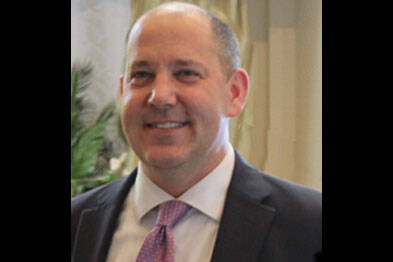By Jason Brune
Walt Disney drilled for oil in Alaska in 1938. He and his associates wildcatted a second well on the Iniskin Peninsula on the southwestern end of Cook Inlet decades later, five years before Alaska became a state, and just months before he opened Disneyland.
Unfortunately, Disney and his gang of Mickeys left much of their exploration hardware, including countless barrels of oil and lubricants on those federally owned lands to rust and leak contaminants into the ground. And the worst part — it’s all still there. In fairness, effective environmental laws weren’t passed until the early ‘70s and the federal government did not force Disney to clean up his mess.
Ten years after Alaska became a state, oil was discovered at Prudhoe Bay, although not by Disney and his colleagues. The massive discovery required the construction of the 800-mile trans-Alaska pipeline, and to facilitate this, the government was compelled to settle aboriginal land claims in Alaska. To do so, the Alaska Native Claims Settlement Act (ANCSA) was signed into law 50 years ago this month. Through ANCSA, the federal government conveyed 44 million acres of land to Alaska Native Corporations.
Several Alaska Native corporations selected these contaminated sites on the Iniskin as part of their land entitlement promised through ANCSA. Little did they know what awaited them. To date, Disney, his business partners, nor the federal government who owned the land at the time of the contamination, have cleaned up the site.
Similar stories, while not as glamorous as that of Walt Disney’s effort to be like the Beverly Hillbillies, were repeated over 1,000 times on lands selected by Alaska Native Corporations. Comparable environmental contamination was left by the military, Federal Aviation Administration, and others on these tracts of land. Nobody expected that the federal government would give damaged goods as part of ANCSA, but alas, that’s exactly what happened. No fairy tale here.
Federal law requires that contamination needs to be cleaned up by, among others, whoever the landowner of record was at the time such damage occurred. In the case of these sites, this landowner of record happens to be the United States of America. In 1990, Congress required an inventory of the contamination and, after the federal government failed to comply, made a similar demand decades later. In 2016, the Bureau of Land Management finally provided a report to Congress that identified the ANCSA contaminated sites. But from that time to today, very little has been done to rectify the situation.
In May, Alaska Gov. Mike Dunleavy sent a letter to President Joe Biden requesting he take immediate action to address this issue. Similarly, the Alaska attorney general and I wrote letters to the Secretary of the Interior and BLM demanding they develop a work plan to clean up these sites. What have we heard since we sent these letters? Jiminy Crickets!
In the meantime, but not with the aforementioned Alaskan contamination in mind, the EPA issued a memo in July entitled “Strengthening Environmental Justice through Cleanup Enforcement Actions.” In the memo, EPA states they will “ensure prompt cleanup actions by responsible parties” with specific emphasis at sites with environmental justice concerns. Indeed, there is no greater environmental justice issue in Alaska than this. Further, President Biden’s top environmental lawyer also recently put corporations on notice that his team is ready to act on pollution in vulnerable communities. Given this commitment, I hope they will also begin to hold themselves and their federal colleagues to the same standard.
Until then, under the leadership of Gov. Dunleavy, the State of Alaska filed 548 notices of intent to sue the federal government for their lack of progress on cleaning up ANCSA contaminated sites. It shouldn’t have come to this. Generations have passed since the lands were conveyed and it is high time the federal government gets its act together and cleans up these sites. We asked nicely and now we’re ready to play hardball. As Walt Disney said, “You may not realize it when it happens, but a kick in the teeth may be the best thing in the world for you.”
Jason Brune is the commissioner of the state Department of Environmental Conservation.

